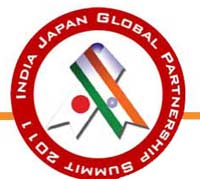Non-governmental organizations or NGOs
Non-governmental organization, or NGO, is an officially comprised organization created by normal or authorized persons that operates autonomously from any government. The phrase originated from the United Nations (UN), and is in general used to pass on to organizations that do not structure part of the government and are not conservative for-profit business.In the cases in which NGOs are subsidized entirely or incompletely by governments, the NGO maintains its non-governmental position by not including government representatives from connection in the group. The phrase is generally applied only to organizations that follow some wider societal plan that has political aspects, but that are not visibly political organizations such as political parties. Disparate the term "intergovernmental organization", the term "non-governmental organization" has no usually approved legal definition.
In many powers, these types of organization are called "civil society organizations" or referred to by extra names. The figure of internationally operating NGOs is anticipated at 40,000. National numbers are even higher: Russia has 277,000 NGOs; India is had around 3.3 million NGOs in year 2009 that is one NGO for less than 400 Indians, and more than the number of primary schools and chief health centres in India
 Definition
Definition
NGOs are hard to define and organized due to the term's incoherent use. NGO, non-profit organization (NPO) and private voluntary organization (PVO) are the majority used requisites and are used interchangeably regardless of differing definitions. Classifying non-governmental organizations within distinct boundaries prohibits NGOs that fall outer each exact boundary. In addition, it is advantageous for NGO networks to create a categorization that allows similar organizations to swap over information more effortlessly.To endeavor an organization of NGOs entails a skeleton, which includes the orientation and the organization's level of function. An NGO's orientation refers to the type of actions an organization takes on. These actions might comprise environmental, improvement, or advocacy work. An NGO's height of operation specifies the level at which an organization works on, like the disparity in work among an international NGO and society or national NGO.
One of the most basic mentions of the term "NGO" was in 1945, when the UN was shaped. The UN commenced the phrase "NGO" to differentiate between the partaking of international private organizations and intergovernmental specialized activity. According to the UN, all kinds of confidential organizations that are autonomous from government control can be renowned as "NGOs." "NGOs" cannot seek to moderate a nation's government in the outline of an opposing political party; NGOs also need to be non-criminal and non-profit.
depending on a situation�s context. He classifies an NGO as �"an autonomous voluntary association of people acting together on a continuous basis for some common purpose other than achieving government office, making money or unlawful activities." In this vision, two main types of NGOs are documented according to the actions they follow: operational and campaigning NGO�s. Although Willets suggests the operational and campaigning NGOs as a device to differentiate the major actions of these organizations, he also explains that they have more similarities than differences. Their activities are unobstructed; thus operational NGOs may need to fight and campaigning NGOs may need to take on structural projects
 History
History
 International non-governmental organizations have a record dating back to 1839. Then it
had been projected that by 1914, there would be1083 NGOs. International NGOs were significant in the anti-slavery movement and the society for women�s suffrage, and attained a crest at the point in time of the World Disarmament Conference. On the other hand, the idiom "non-governmental organization" only came into trendy use with the institution of the United Nations Organization in 1945 with necessities in Article 71 of Chapter 10 of the United Nations for a consultative role for organizations which are neither governments nor associate state.
International non-governmental organizations have a record dating back to 1839. Then it
had been projected that by 1914, there would be1083 NGOs. International NGOs were significant in the anti-slavery movement and the society for women�s suffrage, and attained a crest at the point in time of the World Disarmament Conference. On the other hand, the idiom "non-governmental organization" only came into trendy use with the institution of the United Nations Organization in 1945 with necessities in Article 71 of Chapter 10 of the United Nations for a consultative role for organizations which are neither governments nor associate state. The definition of "international NGO" (INGO) is first given in resolution 288 (X) of ECOSOC on February 27, 1950: it is defined as "any international organization that is not established by an international treaty". The fundamental role of NGOs and other "major groups" in sustainable advance was recognized in Chapter 27 of Agenda 21, leading to strong arrangements for a consultative affiliation among the United Nations and non-governmental organizations.
Speedy development of the non-governmental sector transpired in western countries as a result of the procedures of restructuring of the welfare state. Additional globalization of that course rose after the fall of the communist scheme and was a vital part of the Washington consensus.
Globalization throughout the 20th century gave ascend to the importance of NGOs. Many problems could not be solved inside a nation. International truces and international associations such as the World Trade Organization were centred chiefly on the benefits of industrialist enterprises. In an endeavor to counterbalance this trend, NGOs have developed to emphasize humanitarian issues, developmental aid and sustainable development.
A well-known instance of this is the World Social Forum, which is a foe convention to the World Economic Forum held annually in January in Davos, Switzerland. The fifth World Social Forum in Porto Alegre, Brazil, in January 2005 was concentrated by council from more than 1,000 NGOs. A few have argued that in forums like these, NGOs take the position of what should belong to well-liked movements of the poor.
 Others quarrel that NGOs are often imperialist in scenery, that they at times function in a racialized manner in third world countries, and that they accomplish a similar function to that of the clergy throughout the high colonial era. The philosopher Peter Hallward argues that they are a patrician form of politics. No matter what the case, NGO transnational networking is now widespread.
Others quarrel that NGOs are often imperialist in scenery, that they at times function in a racialized manner in third world countries, and that they accomplish a similar function to that of the clergy throughout the high colonial era. The philosopher Peter Hallward argues that they are a patrician form of politics. No matter what the case, NGO transnational networking is now widespread.
 Types of NGO's
Types of NGO's
NGO type can be unstated by orientation and level of co-operation.NGO type by Orientation
NGO type by Co-operation
Apart from "NGO", frequently substitute terms are used as for instance: independent sector, volunteer sector, civil society, grassroots organizations, transnational social movement organizations, private voluntary organizations, self-help organizations and non-state actors (NSA's).
Non-governmental organizations are an assorted group. An elongated list of acronyms has urbanized about the term "NGO". These embrace the following:
The ISO is actually not purely an NGO, because its membership is by nation, and each nation is symbolized by what the ISO Council resolves to be the 'most broadly representative' standardization body of a nation. That body might itself be a nongovernmental organization; for case, the United States is represented in ISO by the American National Standards Institute, which is independent of the federal government. On the other hand, other countries can be signified by national governmental agencies; this is the style in Europe.
USAID refers to NGOs as private voluntary organisations. Conversely many scholars have argued that this classification is extremely problematic as many NGOs are in detail state and corporate subsidized and managed projects with qualified staff.
 NGOs subsist for a range of reasons, regularly to extra the political or social goals of their members or funders. Patterns comprise improving the state of the natural environment, encouraging the observance of human rights, improving the welfare of the disadvantaged, or representing a group agenda. On the other hand, there are a vast number of such organizations and their goals cover a broad range of political and philosophical positions. This can also simply be practical to private schools and athletic organizations.
NGOs subsist for a range of reasons, regularly to extra the political or social goals of their members or funders. Patterns comprise improving the state of the natural environment, encouraging the observance of human rights, improving the welfare of the disadvantaged, or representing a group agenda. On the other hand, there are a vast number of such organizations and their goals cover a broad range of political and philosophical positions. This can also simply be practical to private schools and athletic organizations.
 Activities
Activities
There are also plentiful classifications of NGOs. The typology the World Bank uses partitions them into Operational and Advocacy:  Operational NGO's
Operational NGO's
Operational NGOs seek to "achieve small scale change frankly through projects." "They mobilize financial resources, materials and volunteers to produce localized programs in the field. They grasp large scale fundraising events; apply to governments and organizations for grants and contracts in regulate to raise money for projects. They repeatedly operate in a hierarchical structure; with a main headquarters staffed by experts who plan projects, create budgets, keep accounts, report, and communicate with operational fieldworkers.Who work directly on projects Operational NGOs deal with an extensive range of problems, but are most often connected with the delivery of services and welfare, emergency relief and environmental issues. Operational NGOs can be more categorized, one regularly used categorization is the division into relief-oriented versus development-oriented organizations; they can also be classified according to whether they anxiety service delivery or participation; or whether they are religious or secular; and whether they are extra public or private-oriented. Operational NGOs can be community-based, national or international. The essential activity of operational NGOs is implementing projects.
 Compaigning NGO's
Compaigning NGO's
Campaigning NGOs seek to "achieve large scale change promoted indirectly through influence of the political system." Campaigning NGOs need an efficient and effective group of professional members who are able to keep supporters informed, and motivated. They must plan and host demonstrations and events that will keep their cause in the media. They must maintain a large informed network of supporters who can be mobilized for events to garner media attention and influence policy changes.The defining activity of campaigning NGOs is holding demonstrations. Campaigning NGOs often deal with issues relating to human rights, women's rights, children's rights. The primary purpose of an Advocacy NGO is to defend or promote a specific cause. As opposed to operational project management, these organizations typically try to raise awareness, acceptance and knowledge by lobbying, press work and activist events.

 Operational and Compaigning NGO's
Operational and Compaigning NGO's
It is not unusual for NGOs to make use of both activities. Several times, operational NGOs will use campaigning systems if they continually facade the identical issues in the turf that could be remedied through policy changes. At the same time, Campaigning NGOs like human rights organizations frequently have programs that assist the individual victims they are trying to assist through their advocacy work.

 Concerns about NGO's
Concerns about NGO's
NGOs were projected to fill a gap in government services, but in countries like India, NGOs are gaining a dominant stronghold in decision making. In the attention of sustainability, most donors necessitate that NGOs demonstrate an association with governments. State Governments themselves are susceptible because they need strategic planning and vision. They are therefore at times tightly spring by a nexus of NGOs, political bodies, commercial organizations and major donors/funders, making decisions that have petite term outputs but no long term affect. NGOs in India are under regulated, political, and recipients of large government and international donor funds. NGOs often take up errands exterior to their skill ambit. Governments have no access to the number of projects or amount of funding received by these NGOs. There is a pressing need to control this group while not curtailing their exclusive role as a supplement to government services.
 Methods
Methods
NGOs vary in their methods. Some act primarily as lobbyists, while others primarily conduct programs and activities. For instance, an NGO such as Oxfam, concerned with poverty alleviation, might provide needy people with the equipment and skills to find food and clean drinking water, whereas an NGO like the FFDA helps through investigation and documentation of human rights violations and provides legal assistance to victims of human rights abuses. Others, such as Afghanistan Information Management Services, provide specialized technical products and services to sustain development activities implemented on the ground by other organizations.
 Public Relations
Public Relations
Non-governmental organisations need strong relationships with the public to meet their goals. Foundations and charities use classy public relations campaigns to hoist funds and employ standard lobbying practices with governments. Significant groups may be of political importance because of their capability to manipulate social and political outcomes. A system of morals was recognized in 2002 by The World Association of Non Governmental NGOs.
 Project Management
Project Management
There is an escalating awareness that administration techniques are critical to project success in non-governmental organizations. Usually, non-governmental organizations that are confidential have also a community or environmental focus. They address varieties of concern such as religion, emergency aid, or humanitarian affairs. They activate public support and voluntary contributions for aid; they often have strong links with community groups in rising countries, and they repeatedly work in areas where government-to-government aid is not possible. NGOs are acknowledged as a part of the international relations landscape, and while they influence national and multilateral policy-making, increasingly they are more honestly involved in local action.

 Staffing
Staffing
Not all citizens working for non-governmental organizations are volunteers.There is some quarrel as to whether refugees should be sent to developing countries. Often this type of workers is employed to suit a donor who wants to see the maintained project managed by someone from a mechanized country. On the other hand, the knowledge these employees or volunteers may be compensated by a number of factors: the cost of foreigners is classically superior they have no grassroot connections in the kingdom they are sent to, and local expertise is frequently undervalued.
The NGO sector is a vital employer in terms of numbers. For case, by the end of 1995, CONCERN worldwide, an international Northern NGO working aligned with poverty, employed 174 expatriates and just over 5,000 national staff working in ten rising countries in Africa and Asia, and in Haiti.
 Funding
Funding
Large NGOs may have annual budgets in hundreds of millions or billions of dollars. For example, the budget of the American Association of Retired Persons (AARP) was over US$540 million in 1999. Funding such huge budgets demands noteworthy fundraising labors on the part of most NGOs. Chief causes of NGO funding are membership dues, the sale of goods and services, grants from international institutions or national governments, and private donations. Several EU-grants provide funds available to NGOs.
Advantages and Disadvantages
Advantages:
- They have the skill to test freely with modern approaches and, if needed, to take risks.
- They are lithe in adapting to confined situations and responding to limited needs and therefore able to expand integrated projects, as well as sectoral projects.
- They enjoy good affinity with people and can turn into micro-assistance to very poor people as they can recognize those who are most in need and tailor assist to their needs.
- They have the capability to converse at all levels, from the neighborhood to the apex levels of government.
- They are able to engage both experts and highly motivated staff with less restriction than the government.
Disadvantages:
- Paternalistic thoughts restrict the scale of participation in program/project design.
- Restricted/constrained ways of loom to a trouble or region.
- Reduced/less replicability of an initiative, owing to non-representativeness of the project or selected area, fairly minute project coverage, dependence on outside financial resources, etc.
- "Territorial possessiveness" of a region or project reduces cooperation among agencies, seen as threatening or competitive.
- Top-down models of expansion diminish the role of local knowledge and ownership to propose or match to international norms and expectations.
- Dependency on outside assistance decreases the weight for local and national governments to afford for their citizens.


